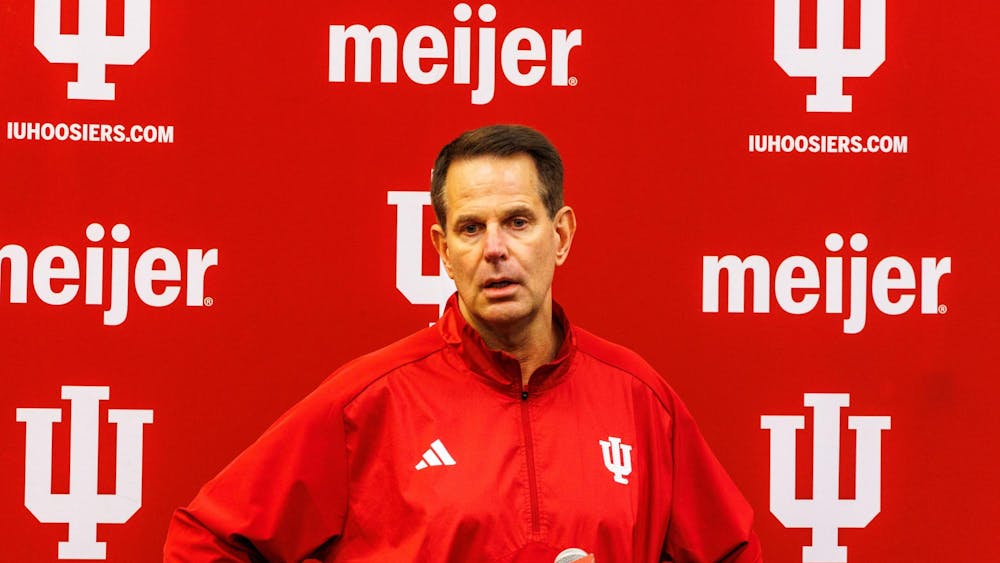Professors, journalists and doctors gathered Saturday evening to discuss the present and future of the human race.
Speakers in the IU Auditorium explored the complex relationship between humanity and its environment at the second annual TEDxIndianaUniversity presentation Saturday evening.
President of the Population Institute Bob Walker began the evening discussing the past, present and future of human demography.
“Population growth is a challenge multiplier,” he said, an image of a Niger village looming behind him.
But in keeping with the spirit of the night’s talks, Walker’s message was one of hope. Though, by some estimates, human population could exceed 27 billion by the end of the century, he said there’s still time to adjust and “live in harmony with nature.”
Simon DeDeo, a professor cognitive science at Carnegie Mellon University, followed Walker’s presentation with an discussion on the nature of play.
DeDeo said that play doesn’t end at childhood, but instead ingrains itself into almost every aspect of one’s adult life.
The first speaker of the night to earn hearty laughter from the audience with his boyish goofiness and clear enthusiasm.
TEDx’s tone shifted again when Dr. Anantha Shekhar told the story of a young girl with cancer, Emma, as an anecdote about the power of genomic medicine. After a battle with cancer, she made a full recovery.
“Emma went to Disney World last month,” Shekhar said before a long pause. “Sorry. I choke up every time I tell this story.”
Using an anecdote about a near-gaffe in a college presentation as a springboard, IU alumnus Adam Fisch focused on the small and large ways in which memory and the perception of time shapes a person’s life.
Fisch said that by the time someone turns 18, they’ve already perceived half of their life.
Time is relative, but not just in the Einstein sense. Fisch’s presentation claimed it’s just as fluid on a personal level.
Following a brief intermission, in which two talks from TED presentations past played on a screen suspended over the IU Auditorium stage, the final three speakers of the evening went on.
Leah Savion drew upon her experience as a philosophy and cognitive science professor at IU to discuss the merits of self-deception and how to notice it.
Clad in a blue tutu, she asked the audience to join her in exercising at the end of the talk to give an example and prove her point.
“We are going to do five low-key jumping jacks,” she said. “Then you won’t need to go to the gym for a week.”
Everyone joined in.
Current Foreign Service Officer for the State Department Alexander Karagiannis stressed the importance of diversity in future diplomatic endeavors in an effort to dispel the notion that US diplomats are exclusively “male, pale and Yale.”
The final speaker of the night, Current TV’s Euna Lee, drew on the works of Nietzsche to bring the event full circle and tell her story of the 140 days she spent in a North Korean prison.
As a child growing up in a South Korea, she said she’d learned to demonize North Korea. Spending time among North Korean soldiers and experiencing their small acts of kindness following her capture at the China border changed her mind though.
“I was out to see humanity over hatred in the enemy’s eyes,” Lee said.
Similar to Savion, by the end of Lee’s presentation, not a single audience member remained seated. Everyone rose for a standing ovation as TEDx Indiana University concluded.
A previous version of this story misidentified Adam Fisch as Adam Fischer. The IDS regrets this error.






